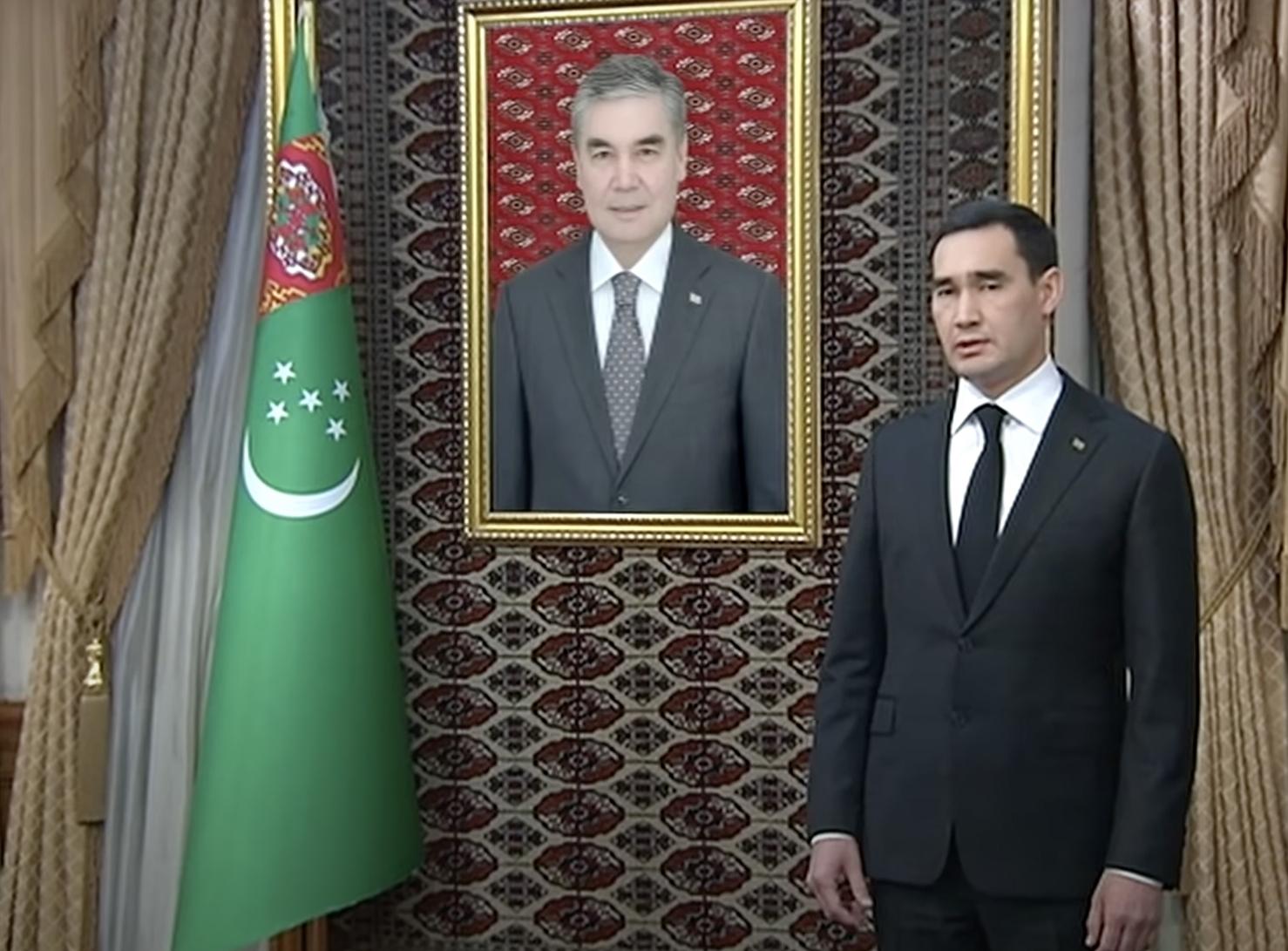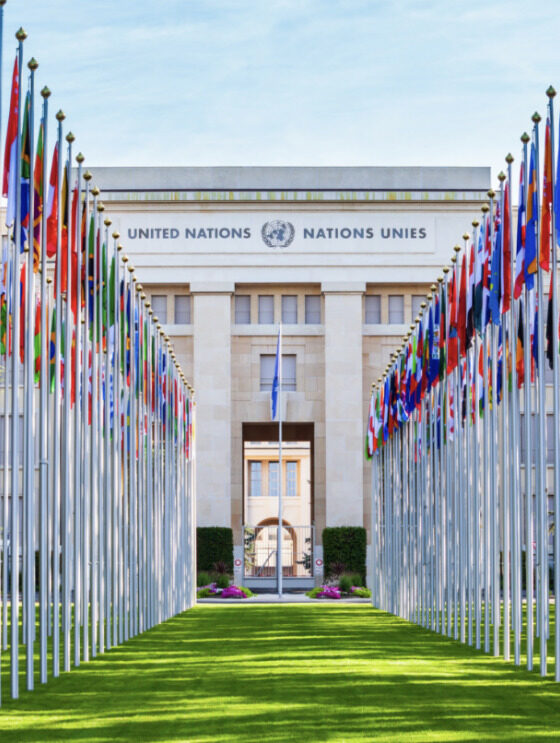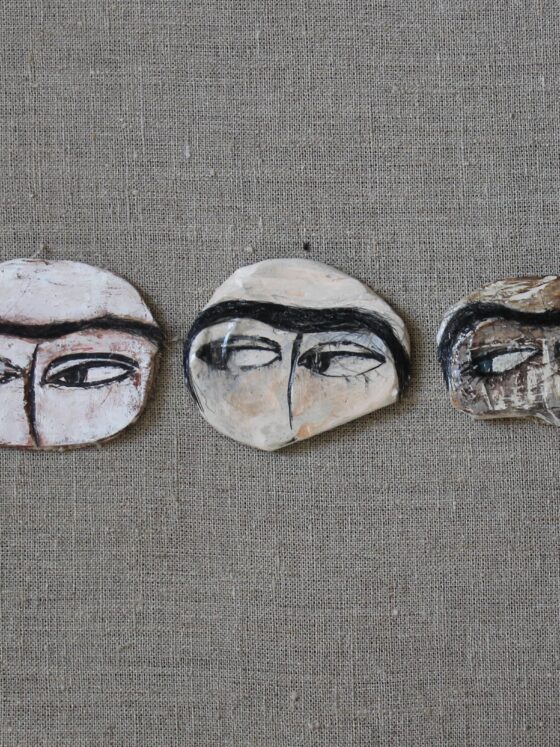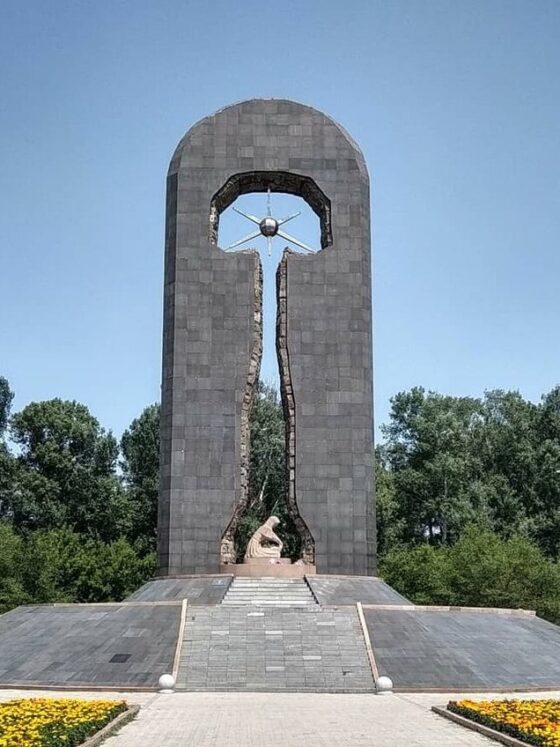By Victoria Clement

Dr. Victoria Clement is the owner of Central Asian Insights, a consulting firm in northern Virginia. Clement has more than twenty-five years experience developing, executing, and presenting educational materials to non-profit, academic, diplomatic, and U.S. Department of Defense communities. She has taught at the Naval Postgraduate School, the University of Illinois Urbana-Champaign, and the U.S. Foreign Service Institute. Clement’s book Learning to Become Turkmen: Literacy, Language, and Power, 1914-2014, was the first book in English to be based on research in Turkmenistan’s archives.
A key and persistent question across all former Soviet space, and especially pronounced in Central Asia, is that of succession; not only who the leaders are, but also how they obtain their positions. The five Central Asian states, and Azerbaijan, have watched and learned from one another since becoming independent in 1991. This article discusses the Turkmen approach to leadership succession. The word “serdar”, which can be a man’s name, means “leader” and was the Turkmen title bestowed upon Stalin. Here we delve into serdarism, to explore how Turkmenistan’s personalized rule turned into a dynastic regimeOn 12 March, Turkmenistan held a presidential election. The result was never in doubt. The people of Turkmenistan understood that there was one real candidate out of the nine who ran: the sitting president’s son, Serdar Berdimuhamedow. Indeed, the Turkmen people labeled this election the “Serdar election” just days after Serdar announced his candidacy. Serdar won, but Turkmen do not believe that their lives will change in any noticeable way. Via email one Turkmen wrote, “We are not expecting changes. It can’t be worse than the previous one” [Üýtgeşiklige garaşamyzok. Oňkuden erbet bolmasa bolýar.]. The first son, who had become known in official sources as “the son of the nation,”[1] now joins the short list of Turkmenistan’s leaders, continuing in the autocratic tradition.
Making Way for Youth
On 11 February 2022, after 15 years in office, Turkmenistan’s president Gurbanguly Berdimuhamedow proclaimed that he would make way for the “young leaders who have been brought up in a spiritual environment and in accordance with the high requirements of our time.”[2] In other words, he, not the people, would choose who would be qualified to be considered a leader. With that, he declared an election to be held on 12 March, two years before the next regularly scheduled presidential election.
Soon afterwards his son, Serdar, announced his candidacy, letting the world know that Turkmenistan was going to establish Central Asia’s first modern dynasty. While the offspring of other Central Asian leaders, like Nursultan Nazarbayev in Kazakhstan and Islam Karimov in Uzbekistan, at times played roles in their respective governments, none assumed the top leadership position. With this move, Ashgabat paved the way for others, like Tajikistan’s first son Rustam Emomali, to inherit the presidency.
Thus, Serdar will continue 30 years of personalistic leadership style in Turkmenistan—and he is young enough to preside over a second 30-year era. Where does this tendency toward personalistic rule come from? Is it rooted in Turkmen culture or was it created by post-Soviet leaders? We can look to the Soviet years for at least one example of a person who ruled with an iron fist and used his likeness as a patriotic symbol: Stalin, or as Turkmen called him, “Beýik serdar” [Great leader]. Lenin too was referred to as Beýik serdar or Beýik adam [Great man].[3] But it is not as simple as being a legacy of the Soviet experience. There are roots in pre-modern Turkmen culture. Those roots did not preordain that the country would be run by autocrats into the 21st century, but they did predispose society toward strongman rule.
In Max Weber’s typology of authority, he describes the “routinization” of charismatic authority.[4] In other words, leader cults can be, and often are, derived from employing a personality in national ideas, events, and institutions. All this stems from a striving for legitimacy. The leader maintains a firm grip on his position by using symbols, language, and systems to buttress his position. In the Soviet Union and later independent Turkmenistan we see the cult of the leader as a strategy of legitimation of autocratic rule.[5]
But generations before the Soviets appeared on the scene, Turkmen looked to strong individuals (hans or serdars) to lead society. Those individuals remain highly regarded as part of Turkmen ethno-national foundation narratives. Oguz Han, the medieval mythical, eponymous ruler of ethnic Turkmen (who were originally called Oguz), tops the list of names Turkmen revere as part of their patriarchal heritage.[6] As was recently reported in the state-press, “In the modern era, the primordial national traditions of democracy, bequeathed by glorious ancestors, have received a worthy continuation in Turkmenistan.”[7] Setting aside any academic problems with primordialism, it must be underscored that Turkmenistan’s “official nation-building project elaborate[s] certain core themes to make sense of the present and the past.”[8] In other words, there is a reliance on the reputation of past personalities (mythical or real) to explain and support contemporary leaders. There is a dialectic at play in which the leader attracts wide support, and the masses nostalgically perceive the leader as part of a long-lost past.[9] In Turkmenistan today, we see the leaders treated as hans or serdars, even employing the latter as a title in everyday parlance, and relying on the Turkmen tradition of strong, personalistic rule to bolster their own position in society. To illustrate how this dynamic has played out since Turkmenistan gained independence, I offer here a brief review of presidential politics.
Turkmenbashy: Father of the Nation
The first president, Saparmurat Niyazow (1991-2006), also known sometimes as Beýik serdar,[10] but more commonly as Türkmenbaşy (Head Turkmen) instituted a personality cult or serdarism[11] that gave him complete control over the country and its peoples’ lives. He controlled the school curriculum, which he reduced from 10 years of cumulative education to just 9 and post-secondary education to only 2 years, while he gutted the content of classes, making his own book, Ruhnama (Book of the Soul), the main text.[12] He changed the calendar, naming months after himself and family members, and renaming the days of the week; he had his likeness engraved on currency; and he had the main port city named after himself and the city of Kerki renamed Atmyrat in honor of his father. He was the sole authority on Turkmen society and his word was considered law. Once, in an off-hand remark to a well-known singer, Niyazow noted that white teeth were prettier than the ubiquitous gold teeth seen across the country. The populace took this quip to be the equivalent of a presidential decree. Thousands of people across the country had their gold teeth pulled and replaced. As I was working in Turkmenistan at the time, I asked my colleague why she had undergone such a painful and expensive procedure. She replied, “It’s what Türkmenbaşy wants.” There had never been any decree, law, or even clear statement to that effect.
Some of his inane strategies to keep the population under control included requiring adults to pass a test on the content of his Ruhnama before obtaining a driver’s license; compelling schools and offices to change the picture of him they hung to reflect that in the late 1990s he had dyed his grey hair black, as he went for a more youthful appearance; and forcing officials and students to participate in large scale ceremonies (çäre) where they performed national songs and dances every time he made a public appearance. Some of his more dangerous policies included closing the Academy of Sciences and all hospitals outside of the capital city Ashgabat; instituting exit visas, which prevented blacklisted citizens from leaving the country; and the televised show trials of clearly drugged and beaten defendants, like Boris Shikhmuradov, who then disappeared in the terrifying prison system.
Niyazow died in office 21 December 2006. Although a legal system was in place to assign the role of interim president to the Speaker of the Parliament, Niyazow had not groomed Speaker Owezgeldi Atayyew to become his successor. In fact, upon Niyazow’s death, Atayyew was jailed suddenly on charges of corruption and immoral behavior, allowing Gurbanguly Berdimuhamedow, Deputy Chairman of the Cabinet of Ministers and Minister of Health, to assume the interim presidency. Niyazow’s son Murat and daughter Irina were left without any claim to the leadership role. Turkmenbashy had not groomed them either. While they were not expected to take over, the family was left with little and no longer lives in Turkmenistan.
Arkadag: The Country’s Patron
Purportedly receiving 89.7 percent of the votes in February 2007, the second president wasted no time in pushing aside Niyazow’s serdarism to create his own. Calling himself Arkadag (“Protector” or “the mountain at your back”), Berdimuhamedow initially indicated that he would reform society, from the highest echelons of politics to kindergartens. At the time some wondered if there would be a Khrushchevian-style thaw. It did not take long to become apparent that Berdimuhamedow’s proclamations of “renewal” amounted to shallow posturing.[13] Berdimuhamedow demonstrated that while he would not mimic Niyazow, he would echo the eccentric dictator’s bizarre ideology as it was a useful method for maintaining control. He never denounced Niyazow openly, but he slowly eradicated Ruhnama from society so that by 2011 it was a thing of the past; he relocated some of the numerous statues Niyazov had erected to himself; and he replaced Niyazov’s photos with his own. Using the slogan “The state is for the people!” [Döwlet adam üçin!], he labelled the new age he was embarking upon “The Era of Might and Happiness”. His people gather and chant his name: “Arkadaga şöhrat!” [Glory to Arkadag].
Berdimuhamedow did not make the same mistake as his predecessor; he began grooming his only son, Serdar, to succeed him several years ago. Part of Berdimuhamedow’s strategy was to adjust laws to facilitate a place for Serdar. In 2016, he saw to it that the constitution was amended to lower the minimum age for presidential candidates to 40. In 2019, Berdimuhamedow disappeared from the public eye for more than three weeks, leading to rumors that he had died and a great deal of chatter about Serdar’s role. A year later, he reconstituted the upper chamber of parliament (Halk Maslahaty), which had been abolished in 2008, merging it with the lower chamber (Mejlis) to create a bicameral legislature. Soon after, the president was made a member in the upper chamber and then, in April 2021, its head. That same year, Serdar turned 40 and the probability of his taking the reins was openly discussed.
The greater problem was not who would take on the position of president, but would they be willing to lead in a way that improved the lives of the Turkmen people. Human rights are often perceived as abstract ideas and broad conceptualizations of an ideal life. Turkmen certainly imagine better lives, but their protestations typically focus on more immediate concerns. Daily life in Turkmenistan is a constant struggle and when citizens do vocalize discontent, it is most often to call attention to basic needs: a lack of cash in ATMs, inadequate housing, or food security.[14] As the Covid-19 pandemic exacerbated difficulties around the world, a food crisis emerged in Turkmenistan. Years of mismanagement of wheat production and incompetent, corrupt water management spurred on the outmigration of former farmers in search of work abroad, created crop failures and food shortages across the country. For decades the government had subsidized food by offering it at lower prices in state-run shops. However, “supplies began to falter in 2015-2016, after the global decline in hydrocarbon prices started to hit Turkmenistan’s state budget.”[15] The availability of subsidized food was dramatically reduced, and shortages led to long lines of citizens struggling to obtain the most basic goods. Privately-owned shops continue to sell food at market prices, but it is difficult for the average Turkmen to afford higher costs. The reduction of affordable food was exacerbated when in January 2019 the President repealed subsidies for natural gas, water, and electricity. These subventions had not only made life affordable but were also a source of pride for Turkmen. More than once Turkmen told me that they had sacrificed democratic rule and basic human right in exchange for the endowments afforded to them by the country’s access to abundant natural gas reserves.
Picture 1: Serdar Taking the Oath of Office, March 19, 2022.
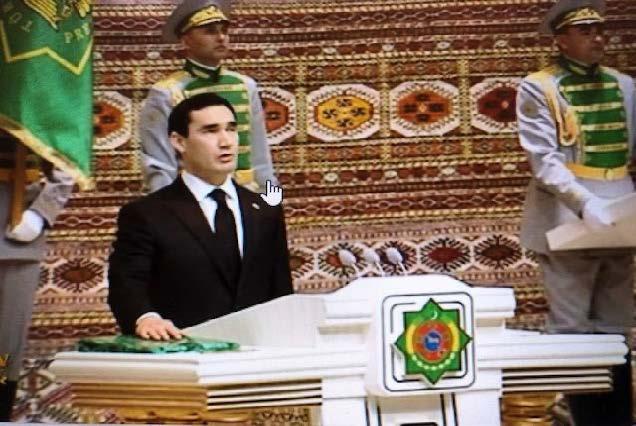
A looming question is: why now? Why did Berdimuhamedow choose now to step aside? We can only speculate. He noted that at 64, he is two years beyond the age of the Prophet Muhammed—an important age in Turkmen culture—implying that he might simply be tired of the role. Indeed, on March 26, Berdimuhamedow made a televised request to his son, the new president, for a leave of absence from his work in the Halk Maslahaty. There is also the fact that he is thought to be generally in ill health with diabetes.[16] Perhaps it was that he saw public unrest after the 2020 parliamentary elections in Kyrgyzstan and then again in Kazakhstan in early 2022 and decided it was better to get ahead of the situation by making the decision for himself.
Serdar-ism
We are entering a new era of Serdar-ism (now with a capital “S”) as Gurbanguly’s son takes the reins and is poised to shape a new ideological era, albeit one that employs similar tactics to maintain personalized power. Serdar purportedly won 73 percent of the votes. This gives the young man plenty of opportunity for improvement during what is expected to be a long tenure and more important, did not surpass the percent of votes his father received in his runs for office.
A point relating to transparency and accountability concerns Serdar’s basic qualifications. Serdar lived abroad attending the Diplomatic Academy of the Ministry of Foreign Affairs in Russia (2008-11) and subsequently studying at the Centre for Security Policy in Geneva (2011-2013). He concurrently spent time as a counselor both at Turkmenistan’s embassy in Moscow and at the Turkmen Mission to the U.N. in Geneva.[17] His father was fast tracking him by appointing him to various notable positions in the government. Serdar held 10 civilian jobs and three military ranks in 9 years, including member of the Mejlis, governor of the important Ahal welaýaty and deputy prime minister, the last of which positioned Serdar as one of his father’s deputies. These positions gave him titles but no deep experience in either the legislative or executive branch. Despite his international experience, and perhaps because of his domestic appointments, Serdar has shown himself to be supportive of his father’s eccentricities and damaging policies. Instead of working to address the myriad problems facing the populace, the president prefers to drive fast cars, shoot guns, throw knives, ride horseback, and perform rap videos. Berdimuhamedow spends more time and energy enforcing restrictions on internet access and monitoring society than he does thinking of ways to lift it up.
Yet, Serdar made clear in a statement to the press[18] that he does not intend to stray far from his father’s policies. This, as the Turkmen people anticipated, likely means that aside from some very superficial undertakings, life in Turkmenistan will not change. At his inauguration he noted,
“in the era of power and happiness, our Hero-Arkadag successfully did a lot of work to strengthen the power and increase the international prestige of the Turkmen state, implemented positive reforms of a political, economic, and cultural nature, as well as a thoughtful and scientifically based Program of Action. The purposefulness and political far-sightedness of the leader of the nation in governing the country and bringing it to high levels, as well as his faith and love for his native people, made it possible to bring the Fatherland onto the path of rapid development.”[19]
To this end, Serdar reinstated the entire Cabinet of Ministers upon his taking office.[20] The one newcomer is Muhammedguly Muhammedow, who assumed Serdar’s responsibilities for oversight of the economy, finances, and the banking sector. Most significant was the reappointment of Raşid Meredow, the influential Foreign Minister, who observers thought was the canary in the coalmine. That is, if Serdar had intended to shake things up, forcing out the long-serving Meredow would have been one of his first moves. Clearly, the status quo is enduring.
Berdimuhamedow has yet to step aside completely. Indeed, “the long game is to make Serdar president with himself acting as a shadow head of state.”[21] Berdimuhamedow assured the Turkmen people that “he will continue to spare no effort” in pursuit of the “great destiny of his beloved homeland”.[22] The former president remains Arkadag and Chairman of the Turkmenistan’s Halk Maslahaty. Under the constitution, if anything happens to President Serdar, the chairman of the Halk Maslahaty becomes the president, and that is by design. Berdimuhamedow is gambling a bit here, perhaps taking a cue from Kazakhstan’s former president, Nursultan Nazarbayev, who anointed a successor while maintaining a measure of power behind the scenes. The problem is that Nazarbayev eventually found himself the focus of much public dissatisfaction and was ultimately ousted.[23] But Berdimuhamedow may also have been looking to nearby Azerbaijan where President Heydar Aliyev (1993-2003) successfully handed off power, just months before he died, to his son, Ilham, whose autocratic rule remains unshakable.
Conclusion
It is not often that Turkmenistan acts as a regional model, but with the inauguration of Serdar Ashgabat is setting an example for its neighbors. The choreography we saw in this election created the region’s first modern dynasty and ensured that Gurbanguly Berdimuhamedow will not be forced out of power. The crowds in Ashgabat are now chanting “Arkadagly Serdara şöhrat!” which best translates as “Glory to Serdar with the Protector.”[24] With this chant they praise Serdar but acknowledge that he has the backing of his father. The leadership is happy to have the crowds acknowledge the personages of both father and son but continues to ignore the needs of the people.
Unlike his father in his earliest days in office, Serdar is not posing as any kind of reformer. He has made clear that he will continue his father’s policies and maintain the status quo. He seems to have few goals or aspirations, and therefore there is little hope for any kind of change. Turkmenistan, one of the world’s most opaque countries, is not going to embrace transparency any time soon.
[1] Farangis Najibullah, “Turkmenistan’s President-In-Waiting: Who Is Serdar Berdymukhammedov?” RFE/RL (March 6, 2022), https://www.rferl.org/a/turkmenistan-serdar-berdymukhammedov-presidency/31726284.html
[2] “Дорогу к госуправлению на новом этапе развития надо дать молодым – Бердымухамедов,” КазТАГ Казахское телеграфное Агентство (February 14, 2022), https://kaztag.kz/ru/news/dorogu-k-gosupravleniyu-na-novom-etape-razvitiya-nado-dat-molodym-berdymukhamedov
[3] Victoria Clement, Learning to Become Turkmen: Literacy, Language, and Power, 1914-2014 (Pittsburgh: University of Pittsburgh Press, 2018), 102.
[4] H. H. Gerth and C. Wright Mills, From Max Weber: Essays in Sociology translated and edited with an Introduction (London: Oxford University Press, 1991, reprint), 245-64.
[5] In 1956, Khrushchev attacked Stalin’s “despotic” rule, using the term “kult’ lichnosti” [cult of personality/individual]. Thus, charismatic rule was not a constant during the Soviet era but did dominate the seven decades of Communist rule.
[6] While leaders were traditionally male, one woman stands out as a historic leader of Turkmen who rallied the Teke Turkmen in the face of Imperial Russian aggression upon the death of her husband, Nurberdi Han: Güljemal Han (1836-1925).
[7] “Халк Маслахаты Туркменистана принял историческое решение на 30-летнюю перспективу,” TDH (February 11, 2022), https://tdh.gov.tm/ru/post/30209/vneocherednoe-zasedanie-halk-maslahaty-turkmenistana-nachalo-svoyu-rabotu
[8] Michael Denison, “The Art of the Impossible: Political Symbolism, and the Creation of National Identity and Collective Memory in Post-Soviet Turkmenistan,” Europe-Asia Studies, 61:7, (2009), 1167-1187.
[9] Balazs Apor et al., The Leader Cult in Communist Dictatorships: Stalin and the Eastern Bloc (New York: Palgrave, 2004).
[10] Clement 2018, 157.
[11] Slavomir Horak, “Education in Turkmenistan Under the Second President: Genuine Reforms or Make Believe?” in Education in Central Asia: A Kaleidoscope of Challenges and Opportunities, Denise Egea, ed. (Cham: Springer, 2020), 71-92.
[12] Clement, 2018, 148, 152-55.
[13] Clement, 2018, 160-172.
[14] “Central Asia Protest Tracker,” The Oxus Society, accessed March 23, 2022, https://oxussociety.org/viz/protest-tracker/
[15] “Turkmenistan: Denial, Inaction Worsen Food Crisis,” Human Rights Watch (September 23, 2020), https://www.hrw.org/news/2020/09/23/turkmenistan-denial-inaction-worsen-food-crisis#
[16] Maximillian Hess and Luca Anceschi, “Turkmenistan Is All About the Berdimuhamedovs,” Foreign Policy (March 9, 2022), https://foreignpolicy.com/2022/03/09/turkmenistan-election-berdimuhamedov-dynasty/
[17] “Газета НТ опубликовала биографию кандидата в депутаты Меджлиса Сердара Бердымухамедова,” Hronika (March 14, 2018), https://www.hronikatm.com/2018/03/gazeta-nt-opublikovala-biografiyu-kandidata-v-deputatyi-medzhlisa-serdara-berdyimuhamedova/
[18] “Head of Turkmenistan Gurbanguly Berdimuhamedov took part in the Presidential elections,” Turkmenistan Today (March 12, 2022), https://tdh.gov.tm/en/post/30654/head-turkmenistan-gurbanguly-berdimuhamedov-took-part-presidential-elections
[19] “Торжественная церемония инаугурации Президента Туркменистана,” TDH (March 19, 2022), https://tdh.gov.tm/ru/post/30761/torzhestvennaya-ceremoniya-inauguracii-prezidenta-turkmenistana-2
[20] “Сердар Бердымухамедов утвердил состав правительства,” Turkmen.news (March 26, 2022), https://turkmen.news/turkmenistan-novoe-pravitelstvo/?utm_source=mailpoet&utm_medium=email&utm_campaign=novosti-turkmenistana-turkmen-news_5
[21] Victoria Clement, “Passing the Baton in Turkmenistan,” Atlantic Council (October 21, 2019), https://www.atlanticcouncil.org/blogs/new-atlanticist/passing-the-baton-in-turkmenistan/
[22] “Дорогу к госуправлению на новом этапе развития надо дать молодым – Бердымухамедов,” КазТАГ Казахское телеграфное Агентство (February 14, 2022), https://kaztag.kz/ru/news/dorogu-k-gosupravleniyu-na-novom-etape-razvitiya-nado-dat-molodym-berdymukhamedov
[23] Victoria Clement, “Eurasian Succession Trends: The View from Moscow,” Kennan Institute’s Russia File (March 11, 2022), https://www.wilsoncenter.org/blog-post/eurasian-succession-trends-view-moscow
[24] “Arkadagly Serdar geldi,” Youtube (March 22, 2022), https://www.youtube.com/watch?v=PWz0qv2Ceog

